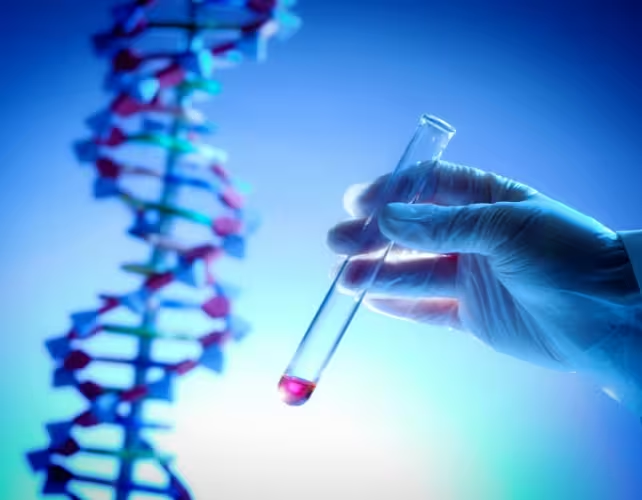5 Minutes
Sexual relationships are a central aspect of many adults' lives and are tied to emotional, social and economic outcomes. Yet a small fraction of adults report never having had sexual intercourse. A recent large-scale study led by researchers at Amsterdam UMC and colleagues—including Brendan Zietsch—analysed roughly 400,000 UK residents (ages 39–73) and about 13,500 Australian residents (ages 18–89) to map the characteristics associated with lifelong sexlessness. Approximately 1% of both men and women in these samples reported never having had sex.
Key demographic and regional patterns
The investigators examined social, environmental, physical, psychological and genetic data to identify patterns linked to sexlessness. Two regional-level findings stood out:
- Sexless men were more likely to live in areas with relatively fewer women.
- For both sexes, sexlessness was more common in regions with higher income inequality.
These findings echo earlier social-media analyses of involuntary celibate ("incel") posts, which were also concentrated in U.S. regions with skewed sex ratios and greater economic disparity. The regional associations suggest that local mate availability and socioeconomic context contribute to the probability of having had sexual partners.
Psychological, social and physical correlates
The study linked sexlessness to several wellbeing and lifestyle indicators. People who reported never having sex tended to:
- Experience greater loneliness, nervousness and lower happiness;
- Have fewer social visits and less access to confidants;
- Report lower sense of meaning in life;
- Use drugs and alcohol less frequently;
- Have higher educational attainment and were more likely to have started wearing glasses at a younger age.
Sex differences emerged for some physical measures: men with lower grip strength and reduced arm muscle mass (used as proxies for general upper-body strength) were less likely to have had sex; this effect was not observed in women. The overall profile—higher education and measured intelligence, reduced physical strength and greater social isolation—aligns with common stereotypes about "nerdy" adolescents who may face early romantic setbacks that persist into adulthood.
Genetic analyses and trait correlations
Heritability and polygenic effects
Genetic data allowed a genome-wide association analysis (GWAS). The researchers estimated that genetic differences account for about 15% of the variation in whether an individual had ever had sex. This does not mean a single "sexlessness gene" exists; rather, many genetic variants each exert very small effects.

Genetic correlations with other traits
Using cross-trait genetic correlations, the study identified links between sexlessness and other genetically analysed traits. Notable correlations included:
- Positive genetic correlations with measured intelligence, educational attainment, higher income and socioeconomic status;
- Positive correlations with introversion, autism spectrum traits and anorexia;
- Negative correlations with substance use disorders (drug and alcohol disorders), and with depression, anxiety and ADHD.
These patterns imply shared genetic influences between sexlessness and certain cognitive, personality and psychiatric traits, but they do not by themselves establish causation or the direction of effects.
Interpreting cause and effect
The cross-sectional nature of the data leaves open multiple interpretations. For example, being sexless could contribute to lower wellbeing, or pre-existing mental-health or social traits could reduce the likelihood of forming sexual relationships. Additionally, the dataset recorded whether participants had ever had sex, not whether they desired sex; therefore, sexlessness in this sample likely comprises both voluntary (e.g., asexuality) and involuntary cases. Some associations—for example, links to local sex ratios and male strength—are hard to explain purely by voluntary asexuality and suggest a substantial involuntary component.
Expert Insight
Dr. Maya Reynolds, social epidemiologist, comments: "This study advances our understanding by combining social, physical and genetic measures in very large samples. It highlights that sexlessness is multi-determined: local opportunity structures, individual traits and shared genetic factors all matter. Future longitudinal and qualitatively informed work is needed to separate cause from consequence and to respect the diversity of adult sexual experiences."
Implications and future directions
The findings have several practical implications. Public-health and social programs should avoid stigmatizing people who do not have sex, while acknowledging that involuntary sexlessness can be associated with loneliness and poorer wellbeing. Research priorities include: collecting data that distinguish desire from behaviour, longitudinal tracking to assess causal pathways, and culturally diverse samples to test generalisability. Larger genetic studies and improved measurement of social context could further clarify how environment and genetic predisposition interact.
Conclusion
This large-scale study shows that lifelong sexlessness is uncommon but linked to a complex mix of regional, social, physical and genetic factors. About 15% of variation is attributable to genetic differences, but no single gene dominates. Associations with intelligence, education, introversion and local sex ratios suggest both voluntary and involuntary pathways. Further nuanced, longitudinal and cross-cultural research is needed to untangle causes from consequences and to inform non-judgmental policies that support social and emotional wellbeing for all adults.
Source: sciencealert


Leave a Comment